How The Liverbirds defied Sixties sexism (and John Lennon) to become the first all-female rock’n’roll band
The two remaining members of the UK’s pioneering band are back with a new single and a memoir. They talk to Fiona Sturges about blazing a trail while still in their teens, the day Chuck Berry invited them to support him in Las Vegas (so long as they were topless), and inspiring a generation of girls to play music

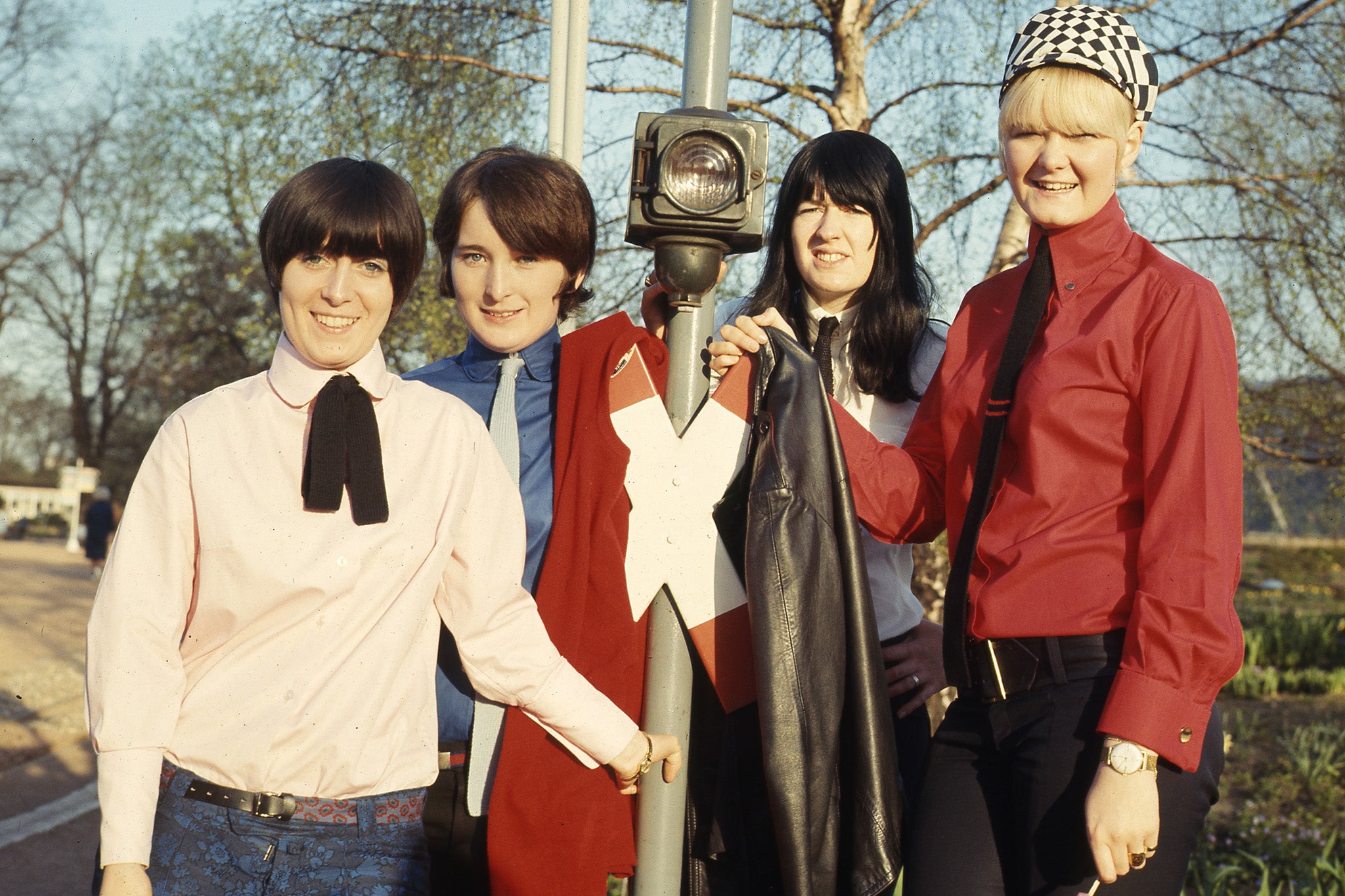
When Mary McGlory saw the Beatles at the Cavern Club in early 1962, she decided there and then that she would form a band. The Fab Four had just had their first hit with “Love Me Do” and Liverpool was abuzz with the Merseybeat sound. One year later, McGlory was back at the Cavern watching the Beatles, this time with her bandmates: bassist Sylvia Saunders, guitarist Valerie Gell and Mary’s guitarist cousin Sheila.
After the gig, the Cavern’s DJ and compere Bob Wooler asked them if they’d like to come backstage. “So we all went in,” recalls McGlory, “and John Lennon and Paul McCartney were getting changed. Bob said to them: ‘Boys, this is The Liverbirds. They are going to be the first all-female group.’ And John looked at us and said, ‘Uh-huh. Girls don’t play guitars.’ The cheek of him! We thought: ‘You just wait. We’ll show you’.”
I am talking to Saunders and McGlory – the two surviving members of The Liverbirds - via video call: Saunders, who at 77 is “the baby of the band”, lives in Earby in Lancashire, while Mary, 78, is speaking from her home in Hamburg. The pair are not only revving up the band again but this month are publishing a joint memoir The Liverbirds: Our life in Britain’s first female rock’n’roll band. The book tells the remarkable tale of four working-class girls who defied the conventions of their era to become musical trailblazers.
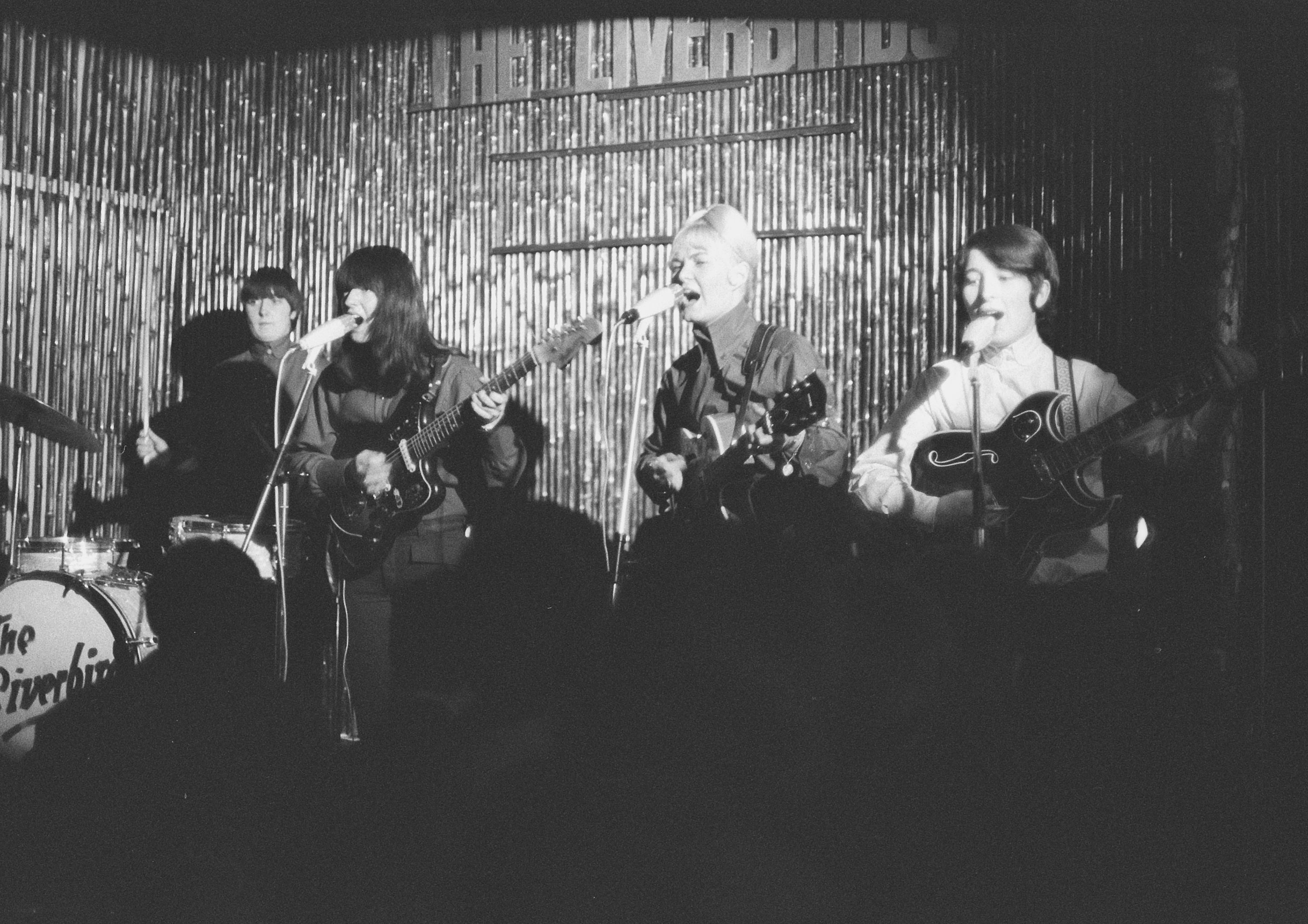
Saunders and McGlory were 15 and 16 respectively when The Liverbirds played their first show. It was late 1962, the venue was St Philomena’s church in Liverpool and the audience was made up of pensioners. Back then, their set comprised four instrumental tracks including The Shadows’ “Apache” and the theme tune from TV’s Steptoe and Son. But after giving up their day jobs – Mary had been a bookkeeper at a cold-meat factory and Sylvia was working at a catalogue firm – they rehearsed every day, expanded their repertoire to include Chuck Berry, Chubby Checker and Bo Diddley, and graduated to playing the Cavern, where Wooler was an early champion.
Solo female singers were 10-a-penny at the time, though McGlory notes there were precious few role models for women in bands. “There was Beryl Marsden, who was in Liverpool and was singing with a boys’ group called the Undertakers. But there were no girls playing instruments. As young as we were, we wanted to prove that females could do it. That was our aim.”
“Our parents had been through the war years,” adds Saunders, “so we wanted to do something completely different with our lives.”
In November 1963, The Liverbirds opened for The Rolling Stones in Nuneaton. In those days bands would often play two consecutive shows, the first to a junior audience. And so McGlory and Saunders watched as Mick Jagger and co were pelted with cream buns by a crowd of schoolchildren. They also played with The Kinks and were pivotal in helping them record their hit song “You’ve Really Got Me”: on the day of recording, The Kinks had their instruments stolen from their van, so McGlory and co lent them their guitars for the day. Ray Davies returned the favour by introducing Saunders and McGlory to his then-girlfriend Pam Birch who told them she could play guitar, and who replaced Sheila. Birch’s arrival, Saunders writes in the book, “was like the final piece in a jigsaw”.
Right from the start, The Liverbirds made the most of their Liverpool roots (their name, which pre-dated Carla Lane’s sitcom The Liver Birds, came from the mythical birds that perch atop Liverpool’s Liver Building). Because of The Beatles’ meteoric success, promoters were making a beeline for the city, including those from Hamburg. The Beatles had famously honed their performance skills in the German city, taking up residence there between 1960 and 1962 and playing daily across assorted clubs on and around the Reeperbahn – McGlory points out that Lennon once said that he was “born in Liverpool but I grew up in Hamburg”. So when Manfred Weissleder, who ran Hamburg’s Star-Club, offered The Liverbirds a residency, they jumped at the chance. Their plan was to stay in Germany for six weeks; it turned into four years. They opened for Chuck Berry, rolled joints backstage with Jimi Hendrix and were styled by Astrid Kirchherr, who had photographed The Beatles. In between Star-Club shows, they toured Europe and released two albums, 1965’s Star-Club Show 4 and 1966’s More of the Liverbirds, which were made up of classic soul and rock‘n’roll covers along with a handful of songs penned by Birch including the propulsive, bluesy “Why Do You Hang Around Me?”
Looking back, McGlory says, “We must have been very self-confident to have done all that at such a young age. It could have gone awfully wrong. I know that when they came to Hamburg a few years later my parents got a terrible shock. They saw where we had been living and working [in the city’s red-light district]. Had they known [beforehand], I don’t think they’d have allowed it.”
“My parents were exactly the same,” says Saunders. “We took them through the Herbertstrasse, which had all these women in windows, and my mother kept on shouting at my dad, ‘Chris, stop looking!’”
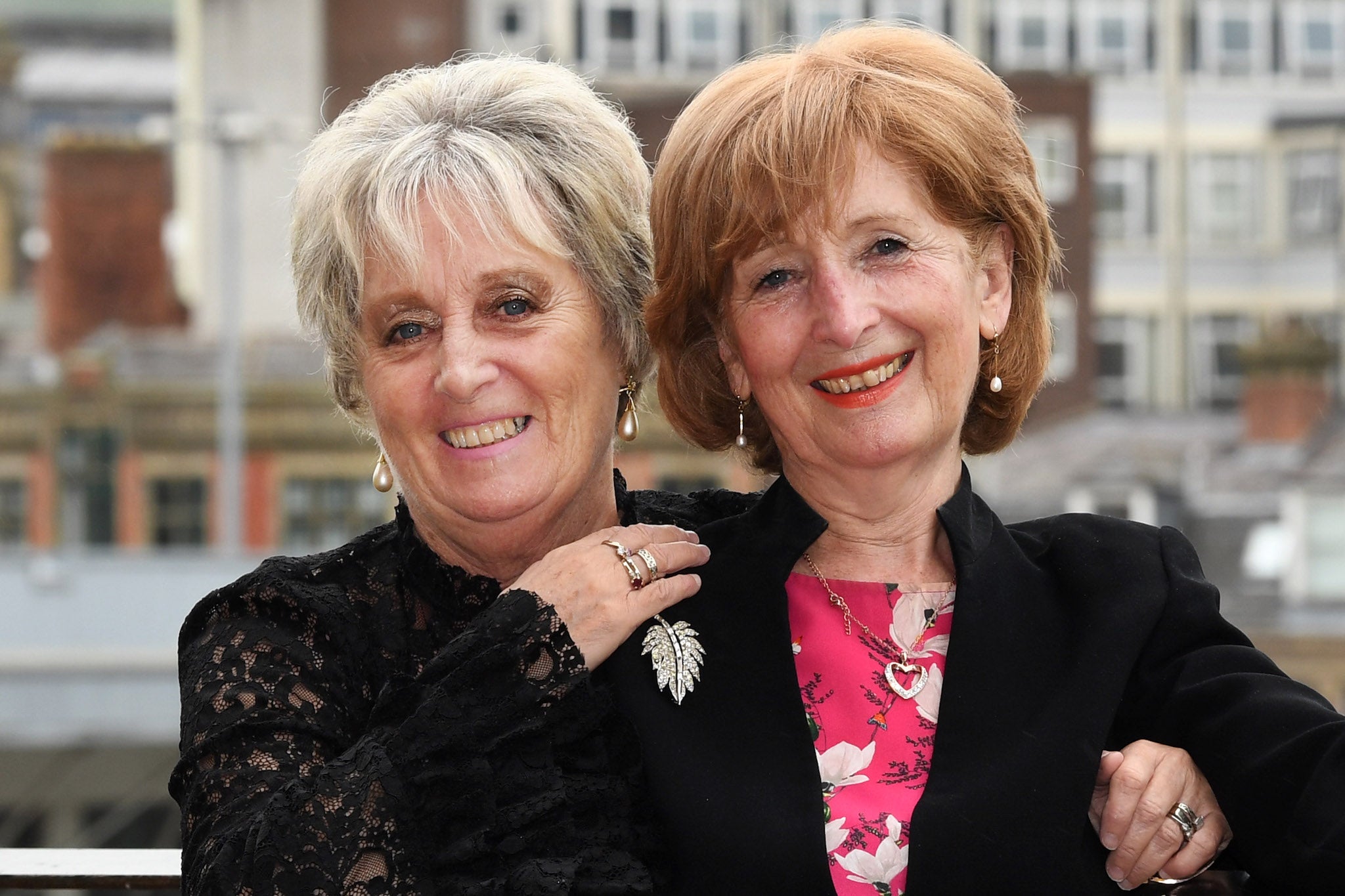
It’s no surprise to learn that the band endured sexism over the years. Chuck Berry invited them to support him during a series of Las Vegas shows on the proviso that they would play topless (they declined). Meanwhile, the UK press took vehemently against the notion of an all-girl band. Before setting off to Hamburg, The Liverbirds were interviewed by The Sunday People, and were photographed sitting on the stairs of the Aaland Hotel in Bloomsbury, London. “The photographer told us ‘Look happy’ and then ‘Now look sad, girls’,” says Saunders. The resulting article was accompanied by a shot of them looking pale and miserable. The headline barked “Mothers, Don’t Let This Happen To Your Girls.”
“We were very naïve, of course,” Saunders reflects. “We thought, ‘We’re going to have our picture in the paper and our families will be proud of us.’ But Pam and Sylvia’s mums were on the phone saying: ‘Get back here right away’. Luckily, the next day Sylvia got permission from the court allowing her to go Hamburg [because Saunders was still 17, she needed a court order to travel]. If it weren’t for that, we’d have been on the first train home.”
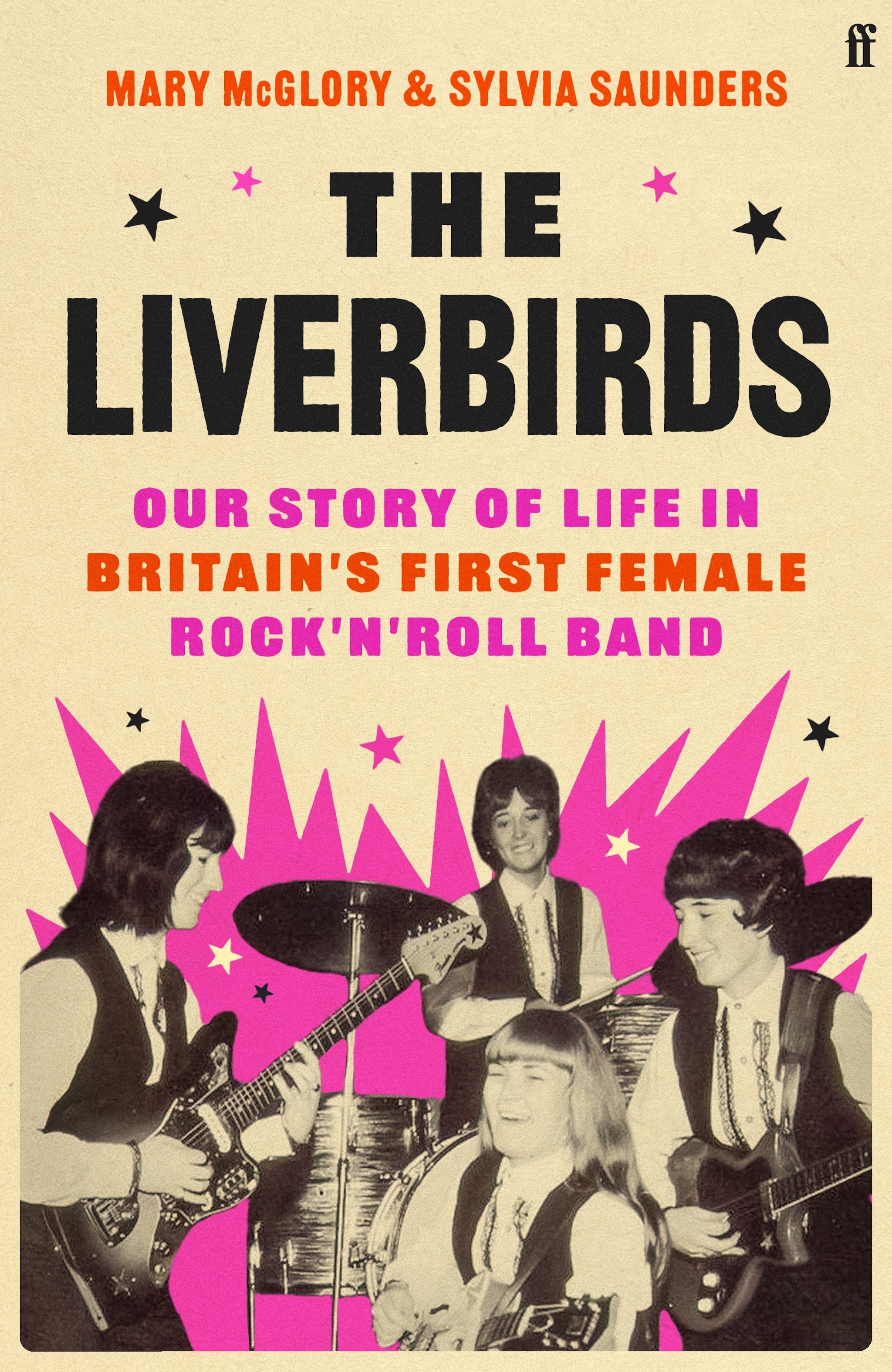
What’s striking in the book is The Liverbirds’ camaraderie and how they looked out for one another. Theirs was not just a musical partnership but a close friendship during which they counselled one another through homesickness, boy trouble and an attempted fleecing by their first manager (they hired a solicitor and fired him). Amusingly, before moving to Germany, Saunders and McGlory made a pact to stay virgins until they were married. “Sylvia, you let us down with that, didn’t you?” giggles McGlory, noting Saunders’ fling with Manfred Mann’s Klaus Voormann (who later found fame as the designer of the Beatles’ Revolver LP). “I did, Mary. Sorry about that,” replies Saunders.
Equally heartwarming is how all the members of the band were respectful of McGlory’s religious beliefs. From an early age, she had wanted to become a nun, an ambition that remained throughout her early years with the band until she met her husband, Frank Dostal of the band Wonderland. “Oh yeah, we always had to find a church for Mary when we were travelling,” laughs Saunders. McGlory says: “I’d think nothing of saying as we were driving down the motorway on a Sunday, ‘Well it’s six o’clock, girls, so let’s find a church.’ And we did. They just went along with it.”
We decided we had got to be truthful, and not leave anything out, even though we’ve both got grandchildren now – and we didn’t quite know how they would react to some bits
The Liverbirds eventually broke up in 1968. Shortly before a tour of Japan, Saunders discovered she was pregnant and was warned off playing drums by her doctor. Meanwhile, Valerie Gell’s German boyfriend, Stephan Hausner, had a car accident which left him paralysed, so Gell made the decision to leave the band and become his full-time carer. Both Saunders and Gell were briefly replaced, though the chemistry wasn’t right so the band called it a day. The following year, the Star-Club closed and was replaced by a live sex club.
To fans, it seemed like the band had vanished, although its members were simply busy with caring duties and raising families. Saunders moved to Spain with her husband, the Scottish musician John Wiggins, and ran a bar, while McGlory stayed in Hamburg with Dostal with whom she ran a music publishing company. The latter also became a songwriter for hire and, with a little help from his wife, penned the 1977 single “Yes Sir, I Can Boogie” by Baccara, which gave the family lifelong financial security.
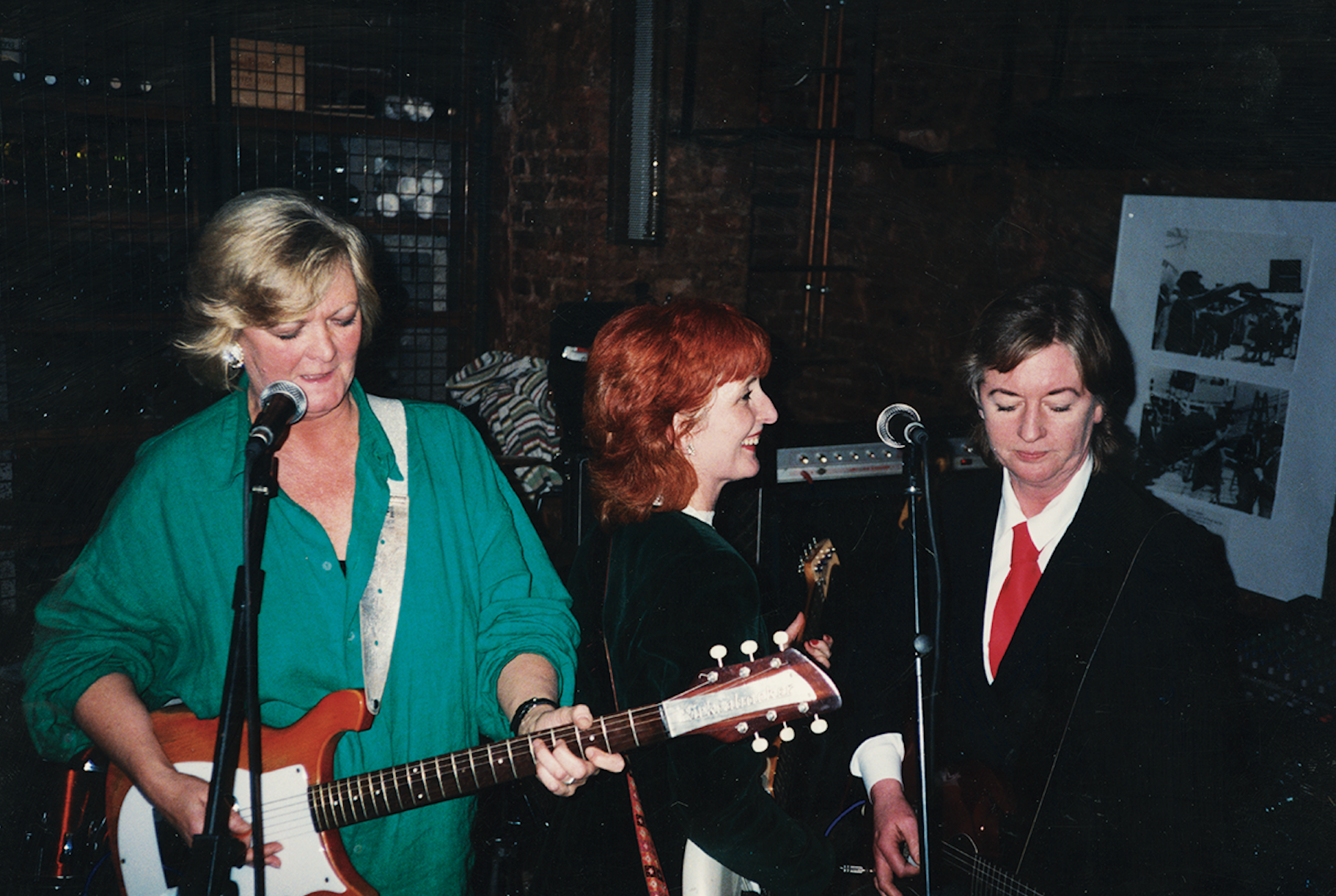
Writing the memoir was, they say, a happy experience. Early in the process, says Saunders, “we decided we had got to be truthful, and not leave anything out, even though we’ve both got grandchildren now” – they have four each – “and we didn’t quite know how they would react to some bits.” Even though The Liverbirds’ star has never faded in Germany – there they regularly get stopped for selfies and autographs – as the decades have gone by, interest in the band has grown across the rest of the world. A reunion in 1998 showed them they still had an audience, while Girls Don’t Play Guitars, a musical based on their story which was staged at Liverpool Playhouse in 2019, introduced them to a new generation. “Young girls came to see it with their mothers and said afterwards they wanted to take up an instrument, which was lovely,” says Saunders.
Following the deaths of Birch in 2009 and Gell in 2016, Saunders and McGlory assumed their days as performers and recording artists were over. But then they met Molly Cutler and Lisa Wright, who played Gell and Birch in the musical. The pair joined them in Hamburg last November to record a new album, due out in late spring. Saunders says her first reaction when an album was mooted was, “I couldn’t do that, I haven’t played for years. I’m a pensioner!’ But within an hour, I’d decided ‘Well, we could try’.” Last Friday, The Liverbirds released a new single “Diddley Daddy (2024 Version)”, a rollicking, slickly-produced new version of their cover of the Bo Diddley song that they originally recorded in 1965. Saunders and McGlory, both of whom are widowed, have been greatly moved by the reaction to their comeback 60 years after it all began. “There’s something about our story that seems to connect with people,” Saunders notes. “We were four young naïve girls who said, ‘We’re going to do it’. And we did.”
‘Diddley Daddy (2024 Version)’ is out now. ‘The Liverbirds: Our life in Britain’s first female rock’n’roll band’ is published by Faber on 14 March
Join our commenting forum
Join thought-provoking conversations, follow other Independent readers and see their replies
Comments
Bookmark popover
Removed from bookmarks